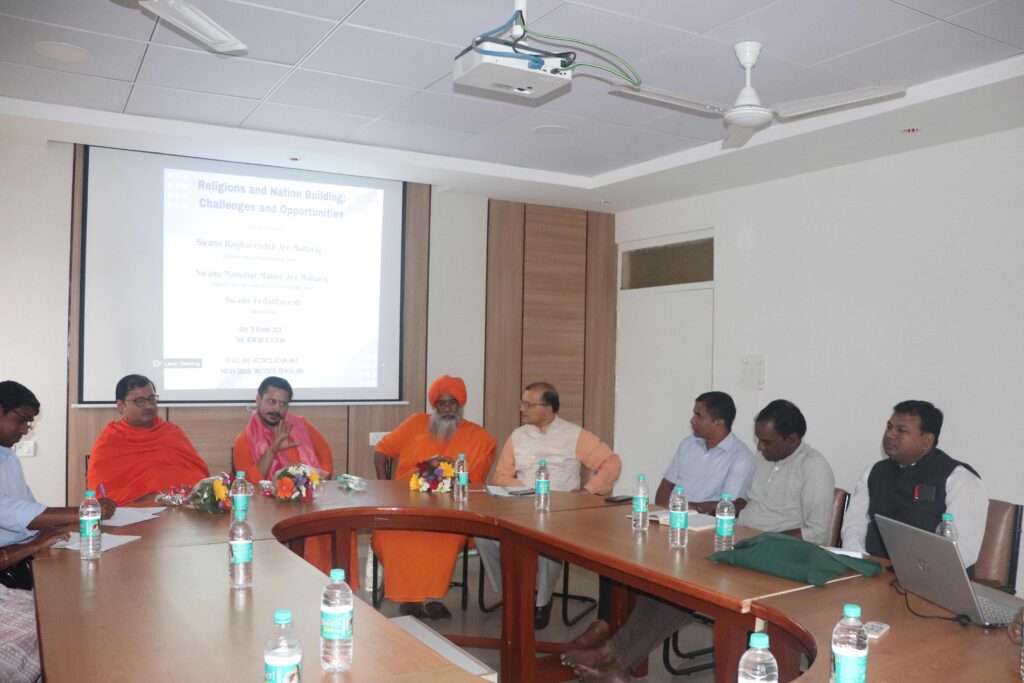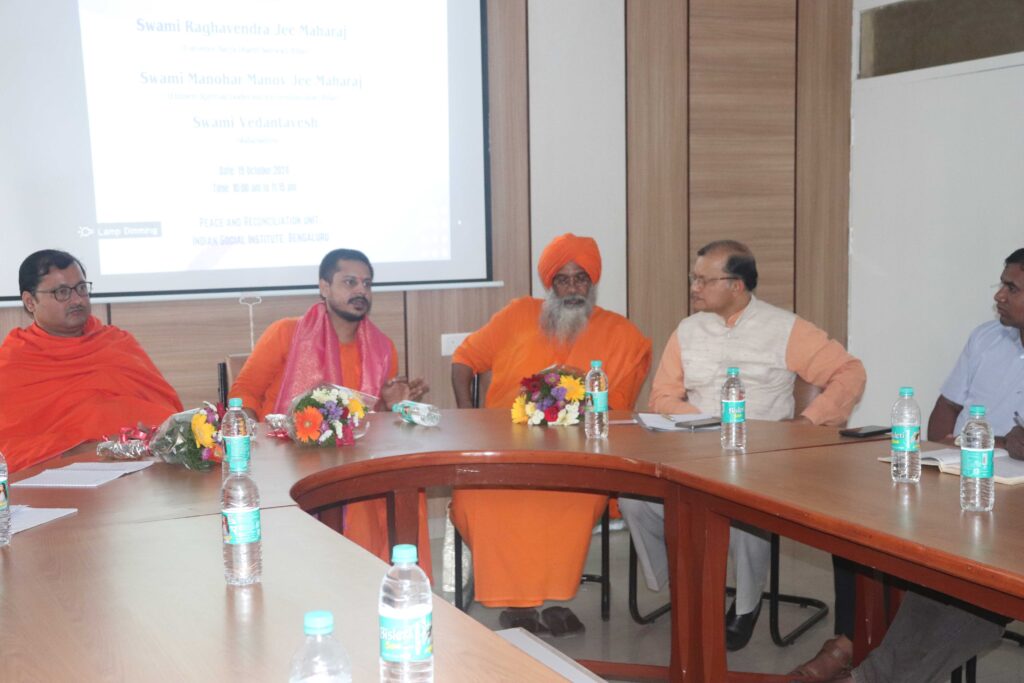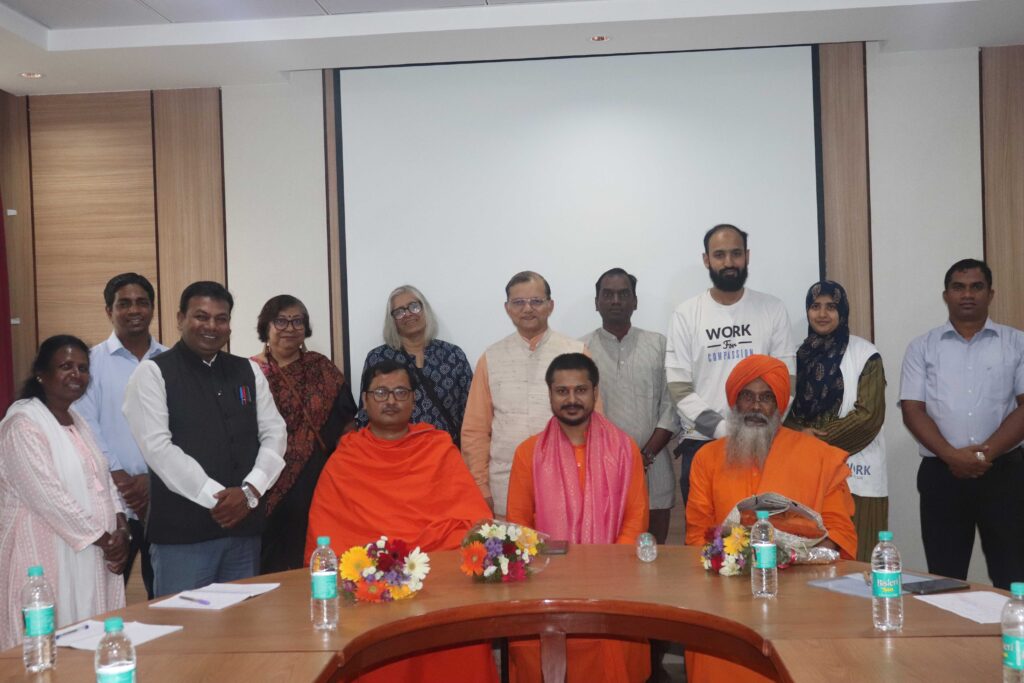


A discussion on “Religions and Nation Building: Challenges and Opportunities” organized by the Peace and Reconciliation Unit of Indian Social Institute, Bengaluru, in its premises on 19th October 2024. The discussion began with the Head of the Peace and Reconciliation Unit, Dr. Denzil Fernandes SJ, introducing the esteemed guest speakers, Swami Raghavendra Jee Maharaj, Swami Manohar Manov Jee Maharaj, and Swami Vedatmavesh, and welcoming them with a bouquet of flowers. all of whom shared their thoughts on the intersection of religion and nation-building in India.
In his opening remarks, Swami Vedatmavesh, a follower of Swami Agnivesh from Parbhani District of Maharashtra, emphasized the unity of God and humanity and pointed out that all divisions among human beings based on different identities are unreal. He stated that where there is love, there is God, and stressed the truth that God promotes love, not violence.
Swami Manohar Manov Jee, a spiritual leader and environmentalist from Saran District of Bihar inspired by Mahatma Gandhi, highlighted the contrast between kingdom rule, dictatorship, and democracy. He expressed concern about the current political landscape in India, drawing parallels with dictatorship and citing the case of Sonam Wangchuk from Ladakh as an example of the government’s reluctance to engage in dialogue. He discussed how minorities are increasingly marginalized, voicing concerns about their treatment and how their voices are often ignored, which hampers national progress.
Swami Raghavendra Jee Maharaj, Convenor of Satya Dharm Samwad, Bihar, advocated for the principles of truth and righteousness, drawing on examples from India’s diverse heritage, including the contributions of Muslims, Jews, Christians, Sikhs and Parsis to the Indian Armed Forces, especially during the 1971 Indo-Pak war of the liberation of Bangladesh. He discussed the importance of religious harmony and diversity, by referring to a BBC-documented interfaith prayer called Hindu Dharm Mera Man. He also distinguished between culture (Sanskriti) and religion, urging religious leaders to step forward and engage in nation-building while following the ideals of Gandhi’s thoughts rather than his persona.
The discussion that followed underscored the importance of religion in fostering love, peace, and inclusion while cautioning against forces that divide the nation. The participants also stressed the need to draw more youth towards building peace and harmony in the country. The programme concluded with tea and snacks for the participants.
